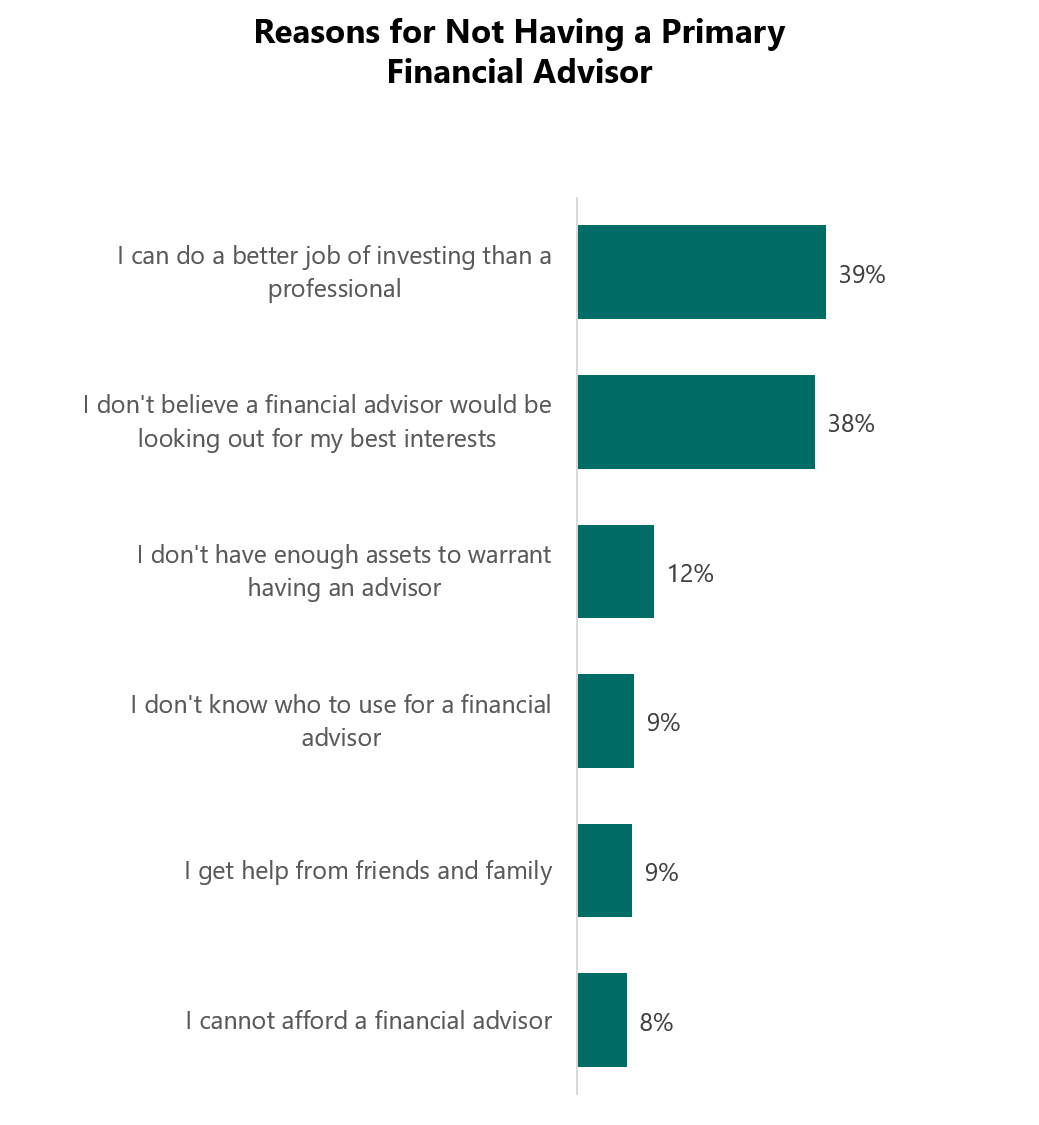Financial advisors acquire new business from a variety of sources: referrals from current clients, investors who are looking for a new advisor, investors who are looking for an additional advisor, and those investors who have never had a professional advisor before.
That last group is a tough nut to crack.

People who want to see their assets grow but choose not to use a financial advisor for that purpose are set in their ways, and have beliefs that are difficult to change. While many of them are in the lower levels of wealth, there are even well-to-do investors who prefer to make the decisions themselves without advice from a professional.
Spectrem’s study Advisor Relationships: How to Develop Loyalty* looked at the basis of the beliefs of investors with advisors to see if there are ways in which advisors can attract investors from that non-believing segment.
According to the study, 57 percent of investors with a net worth of at least $100,000 (not including the value of their primary residence) have a primary financial advisor, meaning 43 percent do not. Of that 43 percent, 39 percent are convinced they can do a better job of investing than a professional, and 38 percent do not believe an advisor would be looking out for the best interests of the investor, believing instead the advisor is looking to turn the investor on to products that produce a greater commission.
Convincing a potential client that you can out-perform them on individual stock investing is a difficult act, without having funds to work with. Likewise, convincing an investor that you do have their best interests in mind at all times is an attitude that is difficult to overcome without some performance or action to prove your point.
Of those investors who do not use an advisor, 12 percent indicate the do not believe they have the assets that require the use of a financial advisor. While that opinion might also be a difficult one to overcome, it is an opinion that can change over time.
Of those investors who do not have an advisor, 34 percent said a windfall of cash would be one reason they would bring on an advisor, and there are numerous ways in which an investor can find themselves with a new level of wealth, whether it be from inheritance, a legal matter, or an increase of income from work.
The other most likely way an investor would become interested in signing up with an advisor is if they get tired of managing their own investments. That, too, is a time-release change in attitude. There is no telling what might cause an investor to grow weary of the process of investing, but it happens.
Advisors need to be aware that investors who do not use a financial advisor do so for a reason, and those reasons can be changed by circumstances or by proper presentation of skills.
Related: How Much Do Investors Trust Advisors With Their Investable Assets?

